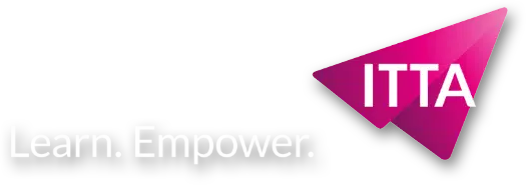ITTA's andragogical approach
The 6 andragogical principles of ITTA
- Need: Adults need to know the reason for their learning.
- Experience: Adults base all learning activities on experience (including mistakes).
- Investment: Adults must be involved in decisions related to the teaching program in place, such as the organization and proposed evaluation methods.
- Utility: Adults must be involved in decisions related to the teaching program in place, such as the organization and proposed evaluation methods.
- Learning format: Problem-solving learning is more suitable for adults than the simple transmission of knowledge.
- Motivation: Adults respond better to intrinsic motivation than to external exhortations.
The trainer role
A crucial role in the students’ learning journey
- He helps students develop their skills by providing them with knowledge and practical tools.
- The trainer can also motivate students by showing them how the concepts learned can be applied to their daily lives.
Identifying the real skills of learners
- The trainer can then guide them by presenting them with a skills repository, feedback or a positioning interview.
- With these tools, the learner is able to identify their real training needs.
Defining motivating, achievable and measurable goals
- The trainer defines the objectives to be achieved for each participant, in connection with the needs defined upstream.
- These goals are specific and motivating. As distance learning becomes more and more popular, it is even more important to find goals that engage learners.
Designing effective training devices
- It is more and more common to see training devices in Blended Learning format (mixture of digital and face-to-face). Therefore, the trainer must be able to adapt to all types of
support.
Choosing relevant pedagogical resources
- With the numerous resources offered by the Internet (videos at hand, articles, podcasts, etc.), future learners already have access to all the knowledge they need if they wish. The questions the trainer should ask themselves are:
- What is my added value?
- Is my training relevant to my learners?
Motivating participants
- To motivate participants, the trainer can use several tools at their disposal, such as corporate social networks, newsletters and blogs.
- They can also motivate participants during the training with role-playing games and quizzes.
Tracking the progress of learners
- It is important to give feedback on the training.
- Did the learner learn something?
- If the training is online, check the indicators on the chosen platform.
- There is also the possibility of sending a quick questionnaire to find out their feedback.
- In person, indicators are more difficult to obtain.
- It is possible to fill out a questionnaire or directly ask if the training allowed them to deepen their knowledge.

